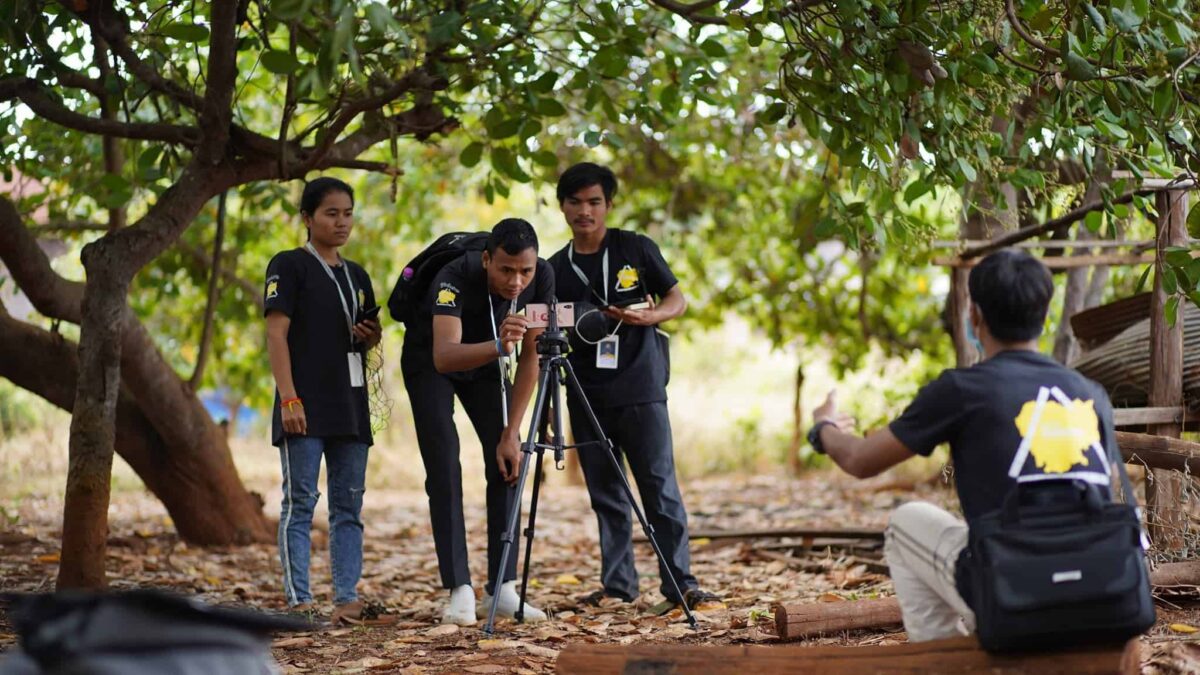Youth in Cambodia use documentary film to shed light on indigenous issues
First-time filmmakers from the predominantly indigenous Cambodia province of Rattanakiri, participated in a 10-day DocuFilm camp to develop films on issues that affect their lives.
From music to early marriage to smoking and dropping out of school, the teens threw themselves enthusiastically into their topics and film production, working overtime to push themselves to create high-quality videos.

“This training does not only provide me with filming skills, but it also helps me to enhance my confidence and communication skills,” said Phoeun Pet, a student from Tampuan. “During the field work, I found in myself the strength to talk with villagers and authority that I have [never] done before due to lack of opportunities.”
Sunflower Film Organization (SFO), an Internews partner, armed the 14 selected participants with skills to source story angles, edit, collect footage, and tell stories, as a steppingstone to documentary production.
In addition to highlighting issues rarely covered in film or reporting in the area, the camp connected indigenous Cambodians from different communities. Several participants have stayed in touch with each other and the trainers and project staff, sharing opportunities to further develop their production skills.
“I’ve continued to produce more films because of my personal interest and curiosity,” said Mang Lean, a student from Tampuan who also works with a local organization to conserve Indigenous languages. “I want to learn more about the production skills. More importantly, I am keen on making short films, which I can tell a story and issues faced by Indigenous people in my community.”

What’s Next: Festival Screening
Due to a third wave of COVID-19 in Cambodia, physical activities, movement and gatherings were restricted this spring. The team could not conduct a follow-up trip to get remaining footage and edits, which created challenges for the partners and editors. Currently, SFO is working virtually with indigenous producers to polish the videos.
The four films focus on: child marriage, profiling a young girl who got married at the age of 13; the negative effects of smoking in indigenous communities; the experiences of indigenous school children, and an examination of the reasons for high rates of school non-completion among them, and the preservation of the Gong – a traditional music instrument for the Kreung indigenous community.
Despite delays, all four final films have secured placement to be screened at the Chaktomuk Short Film Festival this fall and will be available online after the Festival.
The documentary workshop and post-production are supported by Internews.